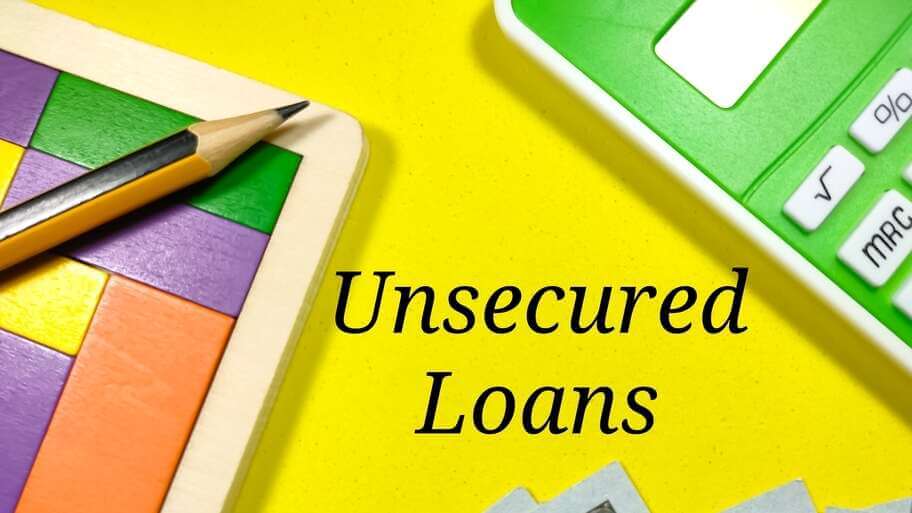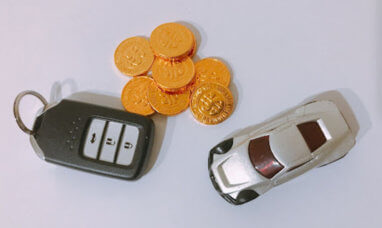Taking out a loan can be a complicated task that requires a great deal of knowledge and attention. If you borrow without considering the terms and nature of your loan, you can end up buried in debt. This is why you should know the difference between secured vs unsecured loans
The primary difference between secured and unsecured loans is whether or not the lender requires collateral or security. For secured loans, you must provide collateral in the form of an asset, account receivables, or inventory. Collateral is not involved in the case of an unsecured loan.
This difference between the two loan types also affects the terms of repayment, loan limit, and interest rate.
Let’s take a closer look at the differences between secured and unsecured loans and when you should use one over the other.
What Are Secured Loans?
A secured loan requires collateral. The collateral can be an item like a car or a home. You can also use investments like bonds and stocks as collateral. The lender possesses the item’s deed until you pay off the loan in full.
The amount of loan that you can take out depends on the value of the asset that you use to secure the loan, as well as the loan-to-value ratio (LTV). The LTV indicates how much money you can borrow as a percentage of the value of your secured asset. For instance, a 90 LTV secured loan means that you can borrow 90% of the market value of your secured asset. High LTV secured loans have higher interest rates due to the increased risk to the lender.
Most people opt for secured loans when borrowing large sums of money. In fact, most lenders will only offer large loans if they are secured. This is because the collateral ensures that the lender will get their money back one way or another.
If you don’t pay back the loan, your lender can take your secured asset and sell it. This makes secured loans less risky for the lender but riskier for the borrower.
The approval process for secured loans also tends to take a long time as they must assess your secured asset. However, the wait may be worth it as interest rates on secured loans are lower than unsecured loans.
Examples of Secured Loans
Mortgage
A mortgage helps finance a home. Monthly charges include the principal amount, loan interest, insurance, and taxes. Your home acts as the security for a mortgage.
Home Equity Line of Credit (HELOC)
A home equity line of credit makes it possible to borrow using your home equity for collateral. As with a mortgage, your home acts as the security for this loan.
What Are Unsecured Loans?
Unsecured loans don’t require collateral. The lender takes on the loan risk in defaulted payments, which is why the interest rates are higher.
However, there are still serious consequences of defaulting on an unsecured loan. For instance, the lender can take you to court to place a lien on one of your assets or garner your wages.
To determine whether you qualify for an unsecured loan, lenders evaluate you based on factors such as:
-
-
- Your financial capacity—your current income and outstanding debts
- Your character—your employment history, personal references, credit score, etc.
- Your capital availability—your investment or savings accounts
-
Examples of Unsecured Loans
Credit Cards
There are various types of credit cards available. Credit card payments are monthly and you will be charged interest if you don’t pay your total monthly balance.
Personal Loans
You can take out a personal loan for a variety of reasons, such as paying medical bills or financing renovations.
Personal Lines of Credit
Personal lines of credit have pre-approved limits. Interest only accumulates on the spent amount.
Student Loans
Student loans are used to pay for college or tertiary education and are accessible via private lenders or the Department of Education.
Are Payday Loans Secured or Unsecured?
Payday loans are unsecured loans designed to fill any financial gaps between paychecks. You should consider other options before taking out payday loans, as they are a great example of unsecured loans with exceedingly high interest rates. Interest rates on payday loans are 391% on average!
Are SBA Loans Secured or Unsecured?
Small Business Administration (SBA) loans can be secured or unsecured. Standard SBA loans don’t need collateral if the requested amount is $25,000 and below. If the amount exceeds $25,000, you’ll need collateral.
How Do Secured Loans Work?
Qualifications
It’s easier to qualify for secured loans than unsecured loans. Lenders are willing to approve people with lower credit scores or incomes since they can get their money back by selling the secured asset if you fail to pay back the loan.
However, the lender will still evaluate your current income, credit history, outstanding debts, and credit score. Having some savings and assets is an added advantage as they increase the chances of the lender approving your loan.
Repayment Terms
For secured loans, monthly payments are scheduled over a specific timeframe. Some loans have varying rates, so the payment amounts may be different each month.
Interest Rates
Secured loans have lower interest rates. Why are secured loans less costly than unsecured loans? The lender charges less interest because they are taking on less risk. If you default on a secured loan, the lender can depend on the collateral to pay off the outstanding balances, fees, and interests.
The lender considers several factors to determine your interest rate. These include your financial standing and the value of your collateral.
Loan Risk
If you default on a secured loan, the penalty is great. The lender has the right to possess the collateral, and your credit score will drop. The loan security doesn’t protect your credit score, so missing a single payment can lower your score by up to 100 points.
In some states, lenders must offer you a grace period to pay off late or missed payments before seizing your collateral.
Sources
You can acquire a secured loan from institutions such as credit unions, banks, or online lenders. For banks and credit unions, the security can be a savings account or a certificate of deposit. The account remains inaccessible until you repay the loan entirely.
Online lenders mostly ask for a vehicle for the collateral. The car will need to get appraised before they offer you the loan amount.
How Do Secured Loans Work?
Qualifications
To qualify for unsecured loans, you need a good or excellent credit score of 690 and above. The lender evaluates your credit and payment history, debt-to-income ratio, and credit score.
Repayment Terms
Unsecured loans are paid back in fixed installments each month. They are typically repaid over about two to seven years.
Interest Rates
The interest rates for unsecured loans are fixed, ranging between 6% and 36%. The more qualified you are, the lower the interest rate you’ll get.
Loan Risk
As a borrower, it can be safer to acquire an unsecured loan. If you cannot meet the repayment terms, the only immediate impact will be on your credit score. In some cases, lenders even extend you a hardship plan with flexible terms.
The loan defaults if you miss payments for a period of 30 to 90 days. At that point, a collection agency follows up. This process can end in court and result in serious financial consequences.
Sources
Some banks do not offer unsecured loans. For those that do, the interest rates are lower if you’re an existing client. Online lenders are easier to deal with as the process is fast and they tend to offer lower interest rates than banks.
Secured Loan Uses
Secured loans are suitable for most purposes and personal projects. In some cases, you can continue using the item you offer as collateral, such as your vehicle or mobile home.
Unsecured Loan Uses
Unsecured loans have some limitations on usage. You can use the funds to pay off debts with high interest rates and to consolidate unmanageable debts. A debt consolidation loan combines many unsecured debts such as medical bills and credit cards into one loan. This way, you can get a lower interest rate and clear the outstanding amount faster. You can also use unsecured loans to finance personal projects like home improvements.
Should You Get a Secured or Unsecured Personal Loan?
When deciding which type of loan to choose, there are several factors to consider. Unsecured loans typically process faster but consider getting a secured loan if your credit history is poor. The interest rates on secured loans are lower, and you’ll have access to higher amounts.
To determine the best type of loan and lender for you, compare the rates from several providers. You can apply to prequalify for many loans and evaluate what different lenders have to offer.
Featured Image: Twenty20






